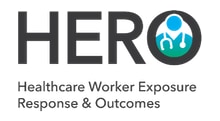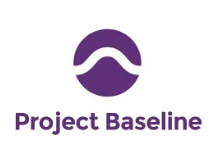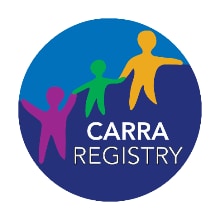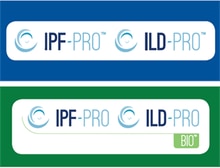Over the past decade, clinical registries have become potent contributors to scientific knowledge by offering a glimpse into real-world trends and patterns of care. These registries also streamline research by directly connecting patients to opportunities.

Registries have evolved from static databases to interactive communities that efficiently support the spectrum of observational to clinical trials.
For decades, findings from registries have been included in clinical practice guidelines, as well as in hundreds of publications. The DCRI has transformed how registries are viewed and how they can be utilized as platforms to support not only observational analyses, but can serve as platforms for engaging communities, improving our ability to connect multiple populations with clinical trial opportunities, and understanding and improving health outcomes.
The DCRI optimizes the operational efficiency of clinical registries, as well as expanding their application for maximal clinical and policy impact.
Today our registries connect members with randomized clinical trials of new therapeutics, surveillance studies to examine safety, opportunities to engage around specific topics, innovative trial opportunities for digital tools and more.
Key features
- Online consent, including in mobile applications
- Bi-directional communication and engagement strategies
- Participant-facing surveys and return of results
- Randomization
- Linkage to data from digital tools, electronic health records, and other data sources.
Ongoing Registries
The HERO Research Program

Recognizing that people working in and around healthcare were at greatest risk when the pandemic started, PCORI funded the DCRI to support the HERO Research Program. The HERO Registry was launched in April 2020, and quickly enrolled over 50,000 healthcare workers and community members across every U.S. state to contribute to research on COVID-19. The HERO interactive online platform supports observational studies on topics ranging from burnout to vaccine willingness, and also offers opportunities to participate in clinical trials and vaccine safety studies.
HERO-HCQ was the first clinical trial offered to HERO members and was a randomized controlled trial examining if hydroxychloroquine was effective in preventing COVID-19. HERO members were able to pre-screen for trial eligibility, consent, and contribute event and outcome data.
HERO-Together, funded by Pfizer, launched on the day the first COVID-19 vaccine was approved under a EUA, and rapidly enrolled over 20,000 Registry members receiving COVID-19 vaccines to learn about the short- and long-term impacts of vaccination. Today, HERO-BOOST, continues to study over 10,000 consented participants contributing data to understand impacts of newer, bivalent COVID-19 vaccines.
The technical capabilities and engagement approaches of the HERO Program enabled this community to lead the way in revolutionizing and simplifying research for participants and serves as a model for other platform registries.
Project Baseline

The Duke Clinical Research Institute, in partnership with Verily Life Sciences and Stanford Medicine, launched the Project Baseline study, a longitudinal study to collect broad phenotypic health data from participants in order to develop a well-defined reference, or “baseline,” of health. The rich data assets within Project Baseline are also used to better understand the transition from health to disease and identify additional risk factors for disease. Project Baseline endeavors to test and develop new tools and technologies to access, organize, and activate health information.
Project Baseline offers a platform for members to opt in to join studies relevant to their conditions and interests. Studies may collect self-reported data, data recorded by mobile devices or other sensors, biospecimens, and electronic health records. Some health conditions of interest studied within Project Baseline include COVID-19, heart health, sleep health, gut health, and more.
CARRA Registry

In a collaboration with CARRA Inc., the DCRI is the clinical and data coordinating center for the CARRA Registry. The CARRA Registry is the largest ongoing, observational registry in North America that collects clinical and patient-reported information about children and young adults with pediatric-onset rheumatic diseases. The CARRA Registry also serves as a biosample repository for select translational studies that leverage data collected through the Registry.
The goal of the CARRA Registry is to understand the long-term outcomes and the long- and short-term safety and effectiveness of the medications used to treat pediatric rheumatic diseases. Additionally, the registry aims to make it possible for all affected children and families to have the opportunity to participate in meaningful and high-quality clinical and translational research.
As of January 2024:
- 70 Active Registry Sites across North America
- 14,000+ Registry Participants Enrolled
- 90,000+ Clinical Visits Recorded
- 1,700+ Biosamples Associated with Clinical Registry Data
- 3 Phase 4 studies utilizing CARRA Registry Data
- 15 Active/completed embedded cohort studies
- 1 Layered Phase 3 clinical trial
For more information https://carragroup.org/research/carra-registry
IPF-PRO Registry

The IPF-PRO registry, started in 2014, is a collaboration between the DCRI and Boehringer Ingelheim designed to advance knowledge regarding idiopathic pulmonary fibrosis (IPF) and other interstitial lung diseases (ILDs). DCRI serves as the clinical, data, and statistical coordinating center. The registry is advancing our understanding of disease through natural history and treatment, with patients followed for 5 years from diagnosis.
Features include:
- >1,800 subjects enrolled across 50 U.S. sites
- 1,000 IPF
- >8,00 PF-ILD (ongoing)
- Prospective sample biorepository supporting biomarker research
- Serial collection of patient-reported outcomes
- Complete long-term follow-up on all enrolled patients through the DCRI Participant Research Operations Call Center
- Serial high-resolution computed tomography images were collected on all ILD subjects
As of April 2024, the registry has presented over 96 conference abstracts and published 18 manuscripts.
Learn more here.
Industry-Sponsored Registries
- Affordability and Real-world Antiplatelet Treatment Effectiveness after Myocardial Infarction Study (ARTEMIS)
- Treatment with ADP Receptor Inhibitors: Longitudinal Assessment of Treatment Patterns and Events after Acute Coronary Syndrome (TRANSLATE-ACS)
- Outcomes Registry for Better Informed Treatment of Atrial Fibrillation (ORBIT-AF and ORBIT-AF II)
- Can Rapid Risk Stratification of Unstable Angina Patients Suppress ADverse Outcomes with Early Implementation of the ACC/AHA Guidelines (CRUSADE)
Other Notable Registries
- ACC National Cardiovascular Data Registry (NCDR)
- Society of Thoracic Surgeons (STS) National Cardiac Surgery Database
- Cascade Screening for Awareness and Detection of Familial Hypercholesterolemia (CASCADE FH)
- AHA/ASA Get With The Guideline Program (GTWG)
- The Pulmonary Fibrosis Foundation Patient (PFF) Registry (PFF Registry)
- Sudden Cardiac Death in Heart Failure Trial (SCD-HEFT EQOL Year 10)
- Surgical Treatment for Ischemic Heart Failure (STICH)

A hallmark of our work is ongoing innovation across all of our operations, including:
- Data management and quality control
- State-of-the-art statistical methodologies
- Pioneering performance feedback
- Quality improvement strategies